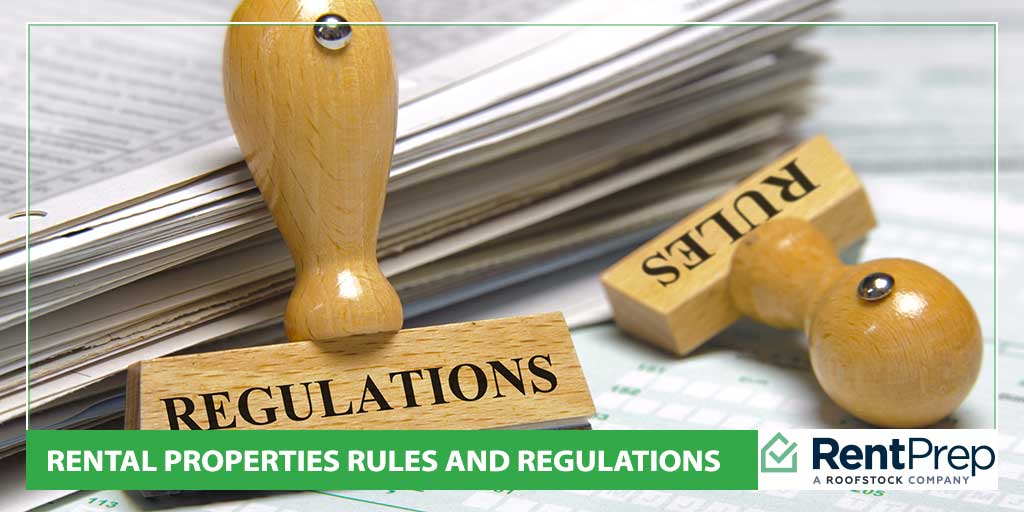
When landlords create a lease agreement, they hope that they’ve covered all the rules, from parking to pet regulations and everything in between.
Many landlords understand that with rental properties rules and regulations will need to be changed and adjusted, but they don’t want to wait until the lease expires to implement them.
On the other hand, tenants who have agreed to the rules and regulations of a rental property get really upset when their landlord keeps changing things. The conflict between tenants and landlords can get really out of hand when both sides aren’t clear on what rules can be changed, how changes need to be implemented, and what changes can’t be made before the lease expires.
Knowing about making changes to the rules at rental properties can help landlords plan accordingly so they can manage their properties how they want, legally and effectively.
But can landlords really include a clause that says they can change the rules whenever they want? Yes and no.
Two Levels of Landlord Rules

There are generally two levels of rules that landlords put in place regarding the management and operations of a rental property. The lower level rules, or house rules, are generally the housekeeping type issues such as pool hours, charges to replace lost keys, and the community quiet hours. Higher level rules are more significant and may include things like raising the rent, changing the number of parking spaces allowed per unit, revising existing pet policies and smoking policies.
Lower level rules help the community run smoothly and won’t affect the tenants too greatly. Higher level rules are more than basic house rules. They are considered major rules that, when changed, could affect the tenant’s use and enjoyment of the unit. Changes to those rules may even contradict the lease agreement, causing tension between landlords and tenants.
Of course, questions about changing the rules mid-lease generally apply to long-term leases, such as 6 to 12 months or longer. For month-to-month leases, changes of all kinds can be made as long as the landlord gives proper notice according to their state’s laws.
Changing Lower Level Rules
It’s a good idea to include a clause in the lease agreement that states that the landlord can adopt or amend “insubstantial” community rules and regulations with proper notice. This kind of clause in a lease agreement can be very helpful when it comes to housekeeping for a rental property, especially a multi-unit place where one tenant’s rule breaking may spill over into affecting the behavior of other tenants. When landlords set up the rules and regulations to manage their rental properties, they should have basic rules and regulations in the lease agreement or a community rules addendum.
If landlords want to include a clause in a long-term lease about changing the community rules in the lease agreement, always include a time frame for implementing insubstantial changes. A 15- or 30-day notice is a common timeline that gives tenants a chance to get used to the changes before they have to take action. This works well for basic rule changes that aren’t urgently needed, but should be implemented sooner rather than later. Tenants should be clearly notified in writing of the change and the effective date so there is no question on it.
In the event that the lower level rules must be changed to boost the safety and security of the property or the tenants, landlords may want to include wording in the clause that waives the 15- or 30-day notice. An example of this might be when a landlord notifies tenants they will be changing the programmed lock time for automatic doors in a multi-unit complex from 10:00 p.m. to 7:00 p.m. due to a rash of burglaries in the neighborhood. If something affects the health and well-being of tenants, rule changes should be implemented as soon as possible. Explaining the reasoning behind the rule change to the tenants should get almost everyone on board quickly.
About Higher Level Rules

It’s easy to identify what higher level rule changes to a long-term lease are because they will significantly affect the tenant’s enjoyment of the property and would actually change the lease agreement if implemented. In other words, if a rule will materially change the way the tenant has been living or costs the tenant significantly more money, it is considered a higher level rule change
So what kind of rule changes might fall under this category? Examples of higher level rule changes include suddenly charging to use laundry facilities that were no longer free, deciding that pets are no longer allowed, or that smoking is no longer allowed. Other examples include charging for parking or taking a parking spot away from a unit, charging tenants for utilities that were previously paid by the landlord, increasing the cost to replace lost keys, suddenly restricting pets when they were previously allowed and even raising the rent.
Such changes may contradict the long-term lease agreement that the landlord signed with the tenants. If those high level rules had been in place before, they may have affected whether or not the tenant would have signed the agreement. While lower level rule changes can be done via written notice, higher level changes must be dealt with in a different manner in order to be effective and legal.
How to Implement Higher Level Rule Changes
If the nature of the rules and regulations that are changing fall under the higher level, landlords can expect to get some push back from tenants. After all, big changes to the rules and regulations generally mean that landlords are changing the very wording in the lease agreement or community rules that the tenant initially agreed to. In many cases, big rule changes should really be an amendment to the long-term lease agreement.
An amendment to a lease agreement is a document that specifies that the landlord and the tenant agree to something new and different than what was originally on the lease agreement. By signing the amendment, both parties agree that the new rule as outlined is the current understanding and expectation of behavior.
Of course, if the lease amendment isn’t signed by the tenant, it cannot go into effect and won’t have any influence on the current lease agreement. If the tenant refuses to sign the lease amendment, the landlord has no choice but to wait until the end of the lease agreement and implement the rule change upon renewal. So if a landlord wants to ban dogs from the property starting January 1st, but one tenant is on a 12-month lease and moved into the unit in August when dogs were allowed, the tenant should not have to get rid of the dog. The landlord can present a lease amendment but unless the tenant signs it, it is not effective. The landlord can let the tenant know that their lease renewal next August will include the new no dog rules, and the tenant can decide at that time whether or not they want to renew. Basically, a landlord can’t change any aspect of a lease agreement during that fixed-term period except by mutual agreement between the landlord and tenant.
In Summary
When it comes to making changes to the community rules, landlords will ultimately be able to run their place how they want to, as long as they are not violating any municipal, state or federal laws. However, depending on the type of rule change, they may not be able to implement the changes whenever they want. For a month-to-month lease, proper notice is all that is needed to make any type of change. For a long-term lease, it’s often best just to wait until the lease renewal time to make any major changes to the rules and regulations of the rental property.

